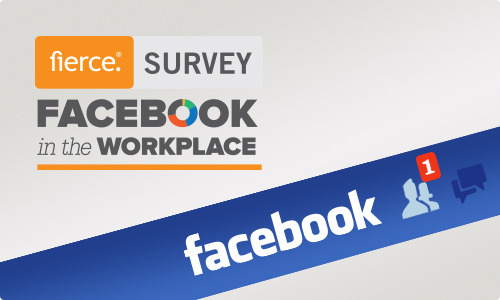Susan Scott's Blog, page 104
February 27, 2013
Working Remote: A Communication Road Block?
This week Yahoo CEO, Marissa Mayer announced that this summer the privilege for Yahoo employees to work remote will end, and everyone will need to return to the office. With only a few hundred of Yahoo employees working full-time from home, out of fourteen thousand plus, it seems this policy change is directed at employees who work remote just a few days a week.
The news comes as a shock, given that Yahoo was on the forefront of the work remote policy, and this type of flexibility has only seemed to grow in popularity.
So why is Yahoo drawing back the troops? In the internal document sent by HR Director, Jackie Reese, Marissa Mayer, and Yahoo as a whole, are committed to getting back to the basics of rebuilding their culture by focusing on communication and collaboration.
Does working remote for a few days a week really hinder collaboration and communication?
Not if the foundation is there beforehand.
Last June, Fierce CEO & President, Halley Bock instituted an unlimited PTO and work remote policy. As a new mom, I couldn’t be more thankful for this policy as it has allowed me to be both successful at work and there for my family.
With that being said, I really look forward to coming into the office after a day away and feel confident saying most of my colleagues feel the same. Is the difference between Fierce and Yahoo that we had a collaborative and communication-rich culture before the policy was put into place and no one wanted to lose that? The fact that we know how good it can be has helped everyone stay accountable to one another.
Do you feel working remote hinders collaboration and communication?
February 25, 2013
Fierce Tip of the Week: Is There Trust?
Take a moment to think about the relationships you value the most in your life – the ones that are strong, that you invest a lot into, and that bring mutual satisfaction. There are, I’m sure, a lot of reasons why those relationships are successful, and at the core is trust.
Trust is everything.
Without it, no relationship can truly thrive.
This week tackle the tough challenge of looking at your less than fulfilling relationships, and ask yourself: Why are these relationships not successful? Do I trust the people involved? Then ask yourself why.
After you take this week to explore, the next step is to have the needed conversations.
February 22, 2013
Fierce Resources: Is Unlimited Time Off Overblown?
This week’s Fierce Resource was first published on the SharedHR blog and features Fierce President and CEO, Halley Bock.
Is Unlimited Time Off Overblown? explores the pro’s and con’s of an open-ended PTO policy.
“Halley Bock, CEO of Fierce, Inc., says that upon switching to an unlimited time off policy in June 2012, her staff has given a lot of positive feedback, and she believes the new policy has helped boost employee productivity and enthusiasm for work. When employees have more freedom around work, they are more energized at their job because they choose to be there.”
What do you think?
To read the full blog, click here.
February 20, 2013
The Gold Star Conundrum
One of the ways clients train fierce conversations is to go through our train-the-trainer (TTT) certification. Internally, we find the experience very valuable, and each fierce employee has the option to go through the certification process to get a deeper understanding of the content.
For our TTT process, everyone receives an assignment to facilitate a portion of the workshop. My assignment was to learn and facilitate the third transformational idea: “All conversations are with myself, and sometimes they involve other people.” This idea explores how we interpret the world, and in turn, approach our conversations.
I approached the training with the goal to perform well and get my “gold star.” The first day I stood up to confidently facilitate and was shocked to hear the voice that came out of my mouth. High-pitched, bubbly even, and a hard smile appeared on my face that was unrecognizable. It wasn’t the authentic me at all! The trust I had in myself of knowing the material evaporated, and I just started reading from the book like an actress who didn’t know her lines.
I was so focused on success and doing well in front of my co-workers that I walked into the room feeling like I had something to prove. I did not trust myself to know the content. This was counter to the purpose of the training which is to facilitate a conversation and collaborate in the learning. I had lost sight of the chance to embrace imperfection and grow.
After receiving feedback to be more myself, I came in the second day with different intentions. I approached my facilitation much like I approach my conversations with co-workers every day. I no longer cared about being perfect or proving my authority, and instead, chose to enjoy the process of learning. The results? I was relaxed, felt more myself, and it was even fun not worrying about perfection. My changed belief of appreciating the experience led me to trust myself after all.
If you have gone through fierce train-the-trainer, what were some of your lessons learned?
February 15, 2013
Fierce Resources: 5 Ways to Get Employees to Love Your Leaders
In honor of Valentine’s Day, this week’s Fierce Resource was written by Fierce President and CEO, Halley Bock and was published yesterday on the Talent Management website.
5 Ways to Get Employees to Love Your Leaders provides simple tips that focus on strengthening the relationship between leader and employee.
“Communication is at the core of the employee-supervisor relationship. Talent managers and leaders can help facilitate positive — if not loving — working relationships by building an honest, autonomous workplace culture. When employees feel appreciated, they are more engaged and productive, leading to better business results and a happier, healthier work environment.”
To read the full article, click here.
February 13, 2013
Take New Fierce Survey: Facebook in the Workplace
At Fierce, we are interested in exploring how you feel about using Facebook at work, and your impressions of policies governing Facebook use in the office.
Does your company encourage or discourage using Facebook on company time? Does Facebook help develop stronger bonds with co-workers? Does your organization have a clear policy regarding acceptable Facebook use?
Click here to take the survey.
We look forward to hearing from you!
February 11, 2013
Fierce Tip of the Week: Be the Model
Too often we sit back and put others in charge of our emotions and abilities. Doing this produces a mentality where you can think – “I’d like to have more authentic conversations but I can’t, because my boss doesn’t know how to.”
This way of thinking can quickly lead to feeling less engaged or motivated to do what you feel you need to do. Why? Because you give all the power to someone else in the situation.
The good news is that you don’t actually have to wait for your boss to be a better communicator for you to start. This week when you notice yourself yearning for change, move to action, and be accountable to yourself and those you engage with. Be the one to take the first step and model the kind of interaction that you want to have.
The results may surprise you.
February 8, 2013
Fierce Resources: Do You Even Need a Vacation Policy?
This week’s Fierce Resource was published yesterday on Software Advice’s blog, The New Talent Times. Do You Even Need a Vacation Policy?, written by managing editor Erin Osterhaus, features Fierce President & CEO Halley Bock.
Halley implemented an unlimited PTO policy in June of 2012, and in this blog explains that she was able to do so because Fierce’s culture supports accountability and communication.
“I wouldn’t recommend it carte blanche to every company. Because you do need to have some things in place before you uncork the bottle. You need to have a culture where people understand that it is up to them to achieve their objectives.”
To read the full blog, click here.
February 6, 2013
Why Is Accountability An Issue?
Fierce Accountability: A desire to take responsibility for results; a bias towards action. An attitude, a personal, private, non-negotiable choice about how to live your life.
I would venture to guess that most people, when directly asked, say they want to be accountable for their actions, decisions, and commitments within their organization.
So why is accountability an issue for organizations?
First, accountability can be a messy topic, and so people avoid talking about it. Many organizations’ cultures have developed around the idea that it is easier to just not say anything. As a leader, it can seem difficult to approach the topic with those on your team who are not fulfilling their responsibilities. It can often become a blame game. Regardless, it is necessary to have the conversations.
Second, too often accountability is something we try to legislate. Accountability is not a process or a tool. It is a choice that each individual needs to make to be responsible for his or her results. You cannot make someone accountable. Effective leaders model and coach in a way that their teams choose accountability, and each member understands that this is the choice they need and want to make to be successful in their organizations.
What are your thoughts? Why is accountability such an issue?
February 4, 2013
Fierce Tip of the Week: Recognize Micromanaging
As a leader, how your employees spend their time and perform are top priorities. Being a resource for questions or concerns and helping them continue to develop is critical to achieve goals.
However, leaders enter dicey territory when they micromanage. When you micromanage, it sends the message you don’t trust your employees.
This week take a moment to look at your leadership style and pay attention if you are spending most of your day telling others when and how they should do their jobs.
If you are micromanaging, ask yourself: Does this person consistently demonstrate that he or she needs this level of supervision? If so, perhaps more training or development is needed in order to do the job proficiently.
If not, then you need to work on your leadership style and trusting your employees.
Your job as a leader is to be a resource and support for your employees – not do their job for them.
Susan Scott's Blog
- Susan Scott's profile
- 861 followers













